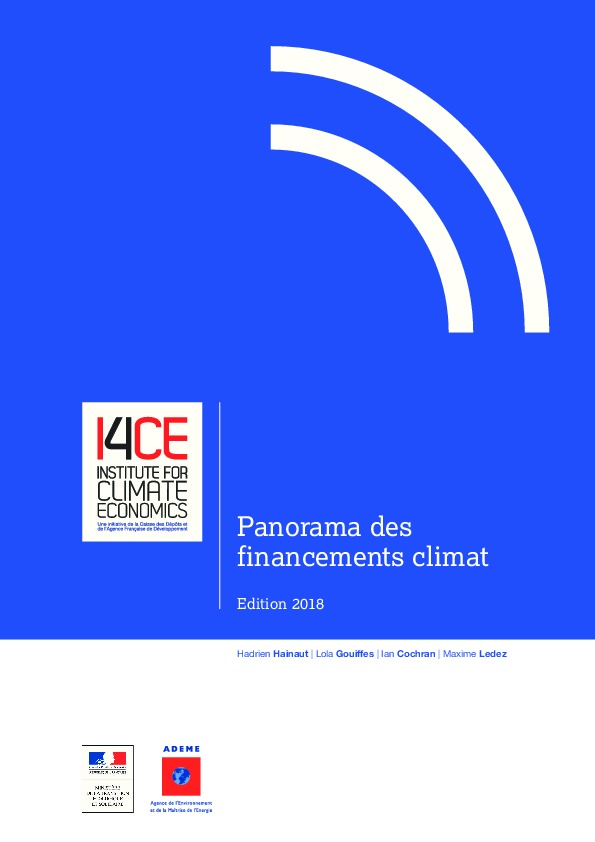2018 edition of I4CE’s Landscape of Climate Finance
The 2018 edition of I4CE’s Landscape of Climate Finance provides an overview of climate investments made by governments, households and businesses in France.
In 2017 climate investments exceed €40 billion, equitably distributed between households, businesses and public authorities. Nevertheless, investment needs are estimated at between €50 billion and €70 billion per year; investment needs could however increase with the adoption of a new Multi-Year Energy Programming (PPE) and National Low-Carbon Strategy (SNBC) that both aim for a carbon-neutral France by 2050.
Since 2014, climate investments have been increasing, but this increase is too small to close the annual investment gap: the delay incurred today will result in higher investment needs in the coming years.
In addition, France invests almost twice as much in climate-adverse areas with about 70 billion invested annually in principally vehicles and heating equipment using fossil fuels. This continues to ‘lock-in’ greenhouse gas emissions for many years to come.
Each year, I4CE publishes the Landscape of Climate Finance in France that transparently tracks climate investments in buildings, transport, energy production, industry, agriculture.
This Landscape is presented to the National Assembly and at over twenty annual events with the public authorities and civil society. It aims to inform the work of parliament and government and to open a constructive dialogue with stakeholders.
The Landscape is based on a transparent method, and its results are discussed in a steering committee comprising the Ministry of Ecological and Solidarity Transition, the Ministry of Finance and the ADEME.
To learn more about I4CE’s work on climate finance in France and abroad, please see the page dedicated to the Landscape of domestic climate finance project.


